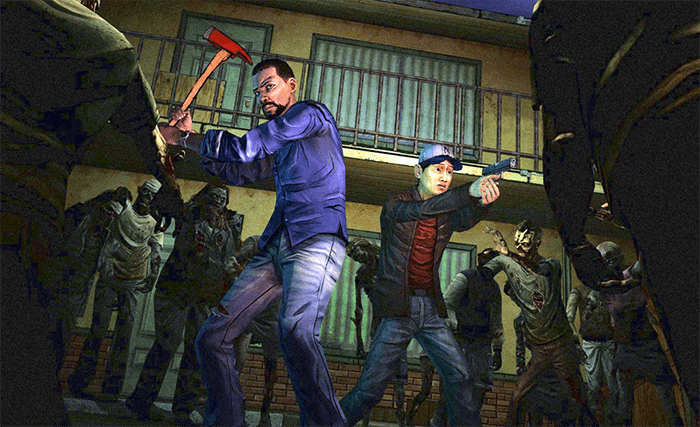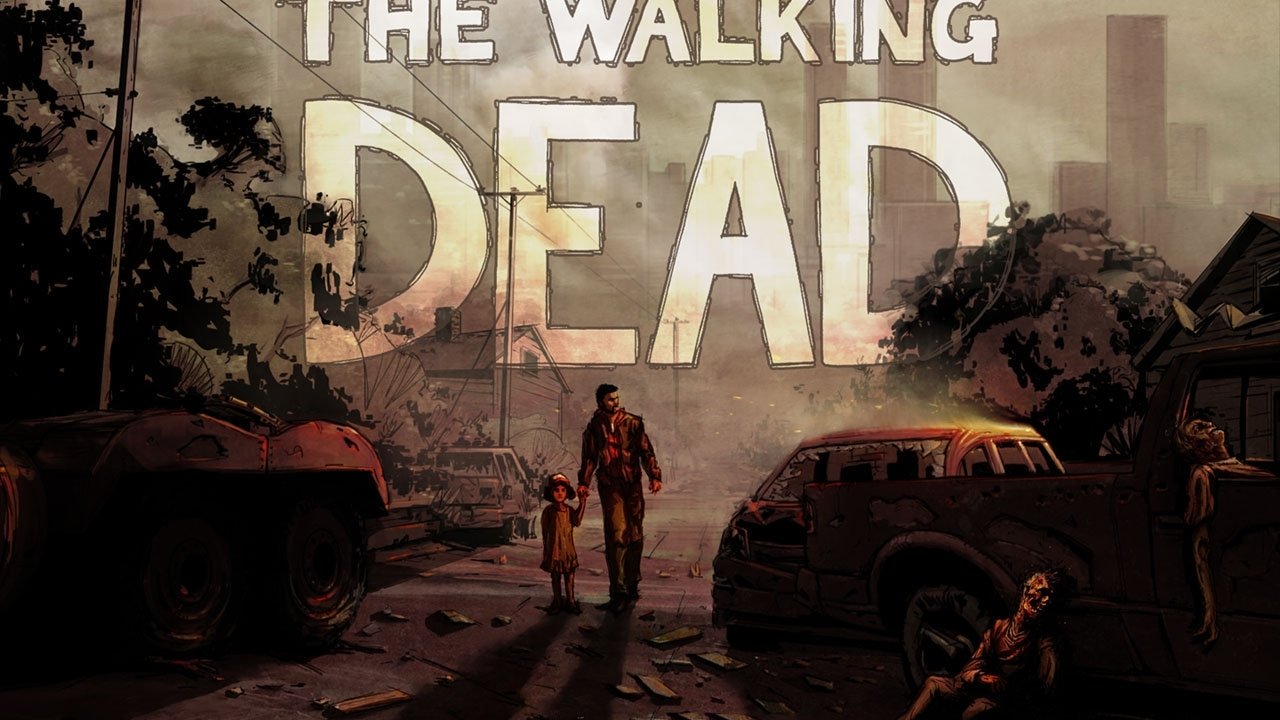Playing through The Walking Dead series in some ways feels almost like playing an entirely new genre. Sure it’s basically an adventure game, and, by adventure game standards, it checks off all the boxes required to be considered in the genre. It’s story-based, it works on a point and click mechanic, and there’s puzzle solving and inventory management.
But it does all of these things in such a dramatically different way that it creates that “Eureka” moment where you wonder why it is that ALL adventure games haven’t been done this way.

Possibly the single biggest difference is also the biggest no brainer. More than most of the traditional adventure games we’ve seen over the years, The Walking Dead series focuses on story and character. The biggest moments in these games come not from throwing a diabolical puzzle at you—such as the infamous Babel Fish puzzle in Infocom’s The Hitchhiker’s Guide to the Galaxy—but from the moments when characters do and say things to each other, and horrific moments with no easy choices forcing players into situations where no matter what they do, someone is going to lose.
It’s probably that de-emphasis on puzzles that is the most surprising thing about Telltale’s new take on the adventure game. Puzzles, after all, are the heart of what is considered traditional gameplay in the genre. When so much of the adventure game is based around advancing the plot, it was the sitting back and reasoning through a puzzle, sifting through inventory and trying various permutations that was often thought to be the backbone of calling an adventure game “interactive” as opposed to being merely a digital narrative. In The Walking Dead, it’s still in there, you still walk around, you still have items, but it’s been so streamlined that instead of being the bulk of the gaming, it’s merely another facet in an experience more wholly focused on telling the story rather than making sure the words “Interactive sequence” are glowing in 100 foot flaming letters so you know this is part you’re supposed to play and have fun with.
It is a vast departure from what old timers in the adventure genre think of as typical of the form, but in many ways, it is a necessary one.
The traditional point and click adventure game—and its predecessor, the text adventure—both suffered from a reputation of being slow-paced affairs. They were left behind as technology focused on graphical fidelity and processing power. They weren’t the fastest or prettiest games, and in many ways they were like chess, allowing players to take time to stop, ponder and think things through carefully before choosing an action and seeing how it played out. The Walking Dead turns this upside down by adding two new elements, time and long term consequence. Decisions can no longer be made at a leisurely pace as a time bar counts down whenever players are presented with an important required response. In action sequences such as zombie attacks, the same holds true with a Heavy Rain-like QTE system that means players taking too long to respond will die. The other big thing is the episodic nature of the game taking a more truly serial approach. Like Mass Effect, players now make choices with consequences. Taking one person’s side can mean losing the trust of another and this can play out in many beneficial and disastrous ways during certain sequences. Once again, it seems like a basic thing, but Telltale has taken the idea of choosing different lines of dialog, and given choice something far beyond “Which of these series of four questions would you like to ask first?” to giving responses that characters remember and can potentially hold against you.
It’s like the adventure game genre itself is going on a new adventure, and to be perfectly frank, it’s needed to do this for quite some time.




